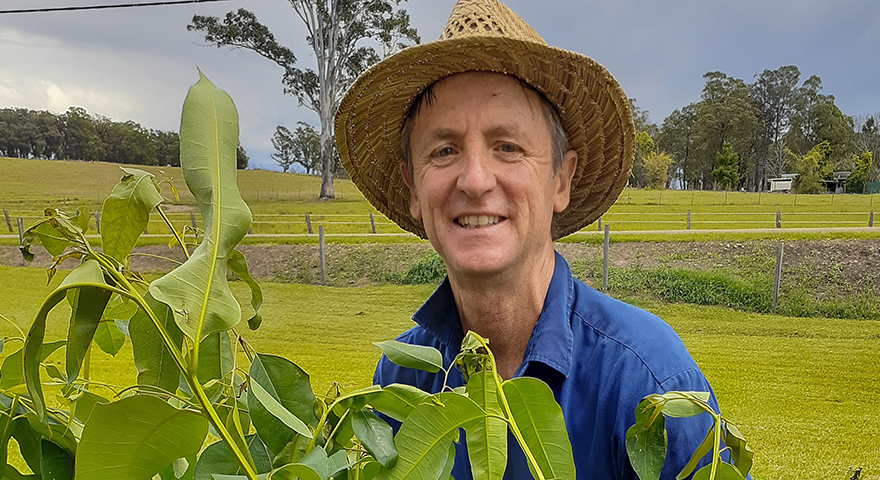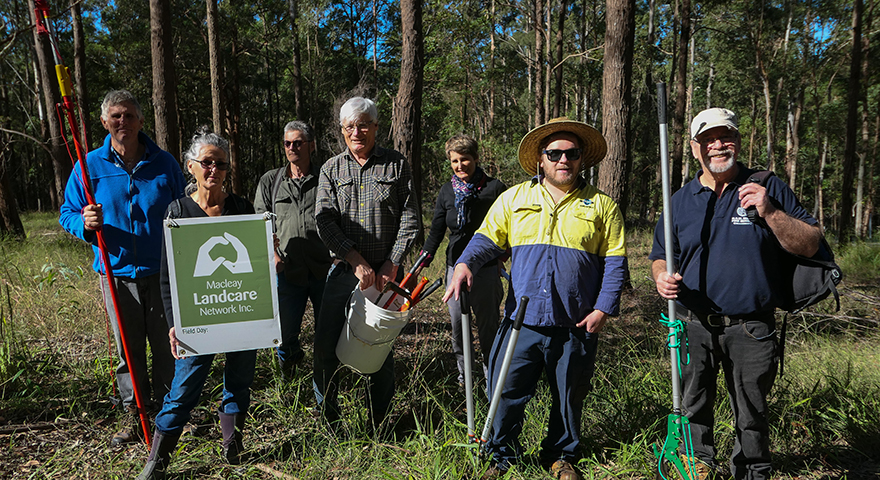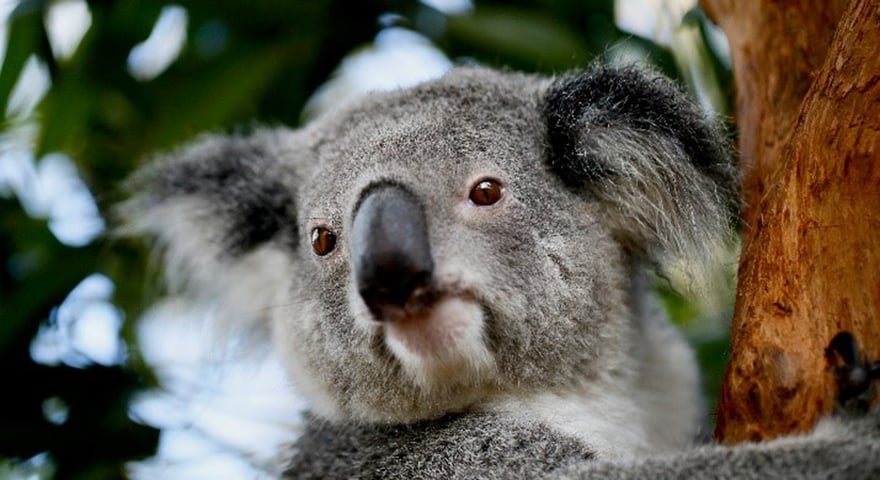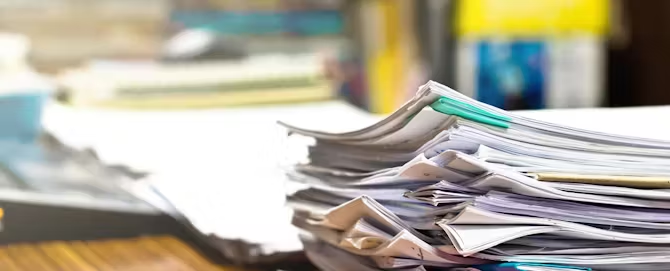Konica Minolta is grateful to the passionate employees whose company matched donations funded this Grant and proud of the significant learnings and outcomes achieved by the Tree change for koalas in the Macleay Valley project.
The Macleay Valley, the traditional lands of the Dunghutti peoples, is recognised by the New South Wales Government as being part of an ‘Area of Regional Koala Significance’. Unfortunately, local studies suggest that koalas in this area, like so many others across Australia, are in decline due to numerous factors.
With a goal of growing plants that will eventually restore koala habitat and compensate population decline due to the bush fires, in 2020 the Macleay Landcare Network was successful in receiving a Konica Minolta Landcare Grant to help the Network implement its Tree Change for Koalas project.
The project’s main focus was to build community capacity to collect, grow and supply appropriate local provenance koala food and habitat tree species. To achieve this, several volunteer-run community nurseries worked together to grow and supply appropriate koala food and habitat tree species according to provenance and land type.
The project also sought to improve the level of understanding of appropriate planting design and care for koala habitat for landholders and the wider community.
Environmental outcomes
There is evidence that koalas have a unique gut microflora adapted to digest local grown trees. Based on this, the nurseries specifically grew plants from locally collected seed. Three seed collection and propagation workshops and seven field days were held to train volunteers in provenance-based seed collection and propagation methods to ensure best practice guidelines were followed.
The collection and supply of provenance-based seed by nursery volunteers has increased the proportion of koala food and habitat trees used for revegetation activities. In the future this will provide flow-on ecological benefits to local koala populations and other wildlife species utilising new plantings.
The propagation and distribution of over 4,000 koala food and habitat trees by nursery volunteers will support the creation of additional koala and wildlife habitat in the region.
The production of project educational resources is also providing information and advice to volunteers and landholders undertaking revegetation activities that will also improve the ecological outcomes of their work.

Andy Vinter, Landcare Officer, Macleay Landcare Network with koala habitat trees propagated at community nursery volunteers as part of the Tree change for Koalas in the Macleay Valley project.
Community engagement and participation
Workshops and field days were very well received tapping into a strong community commitment for koala conservation demonstrated by 79 volunteers contributing over 1,600 hours to project activities.
Participant feedback was positive with attendees being enthusiastically engaged. These events also resulted in greater collaboration between volunteers, particularly nursery volunteers, who are now sharing their knowledge and experience.
Various spin-off meetings and visits were organised independently. The project has also provided a vehicle for Macleay Landcare to engage with a wider network of stakeholders in the Mid North Coast NSW region. For example, the production of the koala habitat brochure involved engagement with key stakeholders such as the Port Macquarie Koala Hospital and the Koala Recovery Partnership, and was distributed to all Landcare networks from Wingham to Coffs Harbour. These partnerships can be used to develop future collaborations towards regional koala conservation efforts.

Macleay Landcare volunteers collecting seed for Koala habitat.
Future recommendations
The workshops have shown that volunteers’ understanding and application of best practice methods can be improved. It is recommended that skill development of nursery volunteers be targeted for future investment.
The hosting of the Koala Habitat Seed Bank also requires ongoing investment if it is to reach its true potential.
Targeted engagement with the Port Macquarie Koala Hospital and their annual tree giveaways, and the exchange or supply of seed to a wider range of nurseries, would help improve outcomes in the supply of appropriate koala habitat seedlings across the region.
Conclusion
The project has been very successful in raising local community awareness and understanding of koala food and habitat trees suitable for the local region.
This effort has triggered the development of a local seed bank and is increasing the local production of koala food and habitat species. Revegetation projects are now featuring a greater proportion of local-provenance koala food and habitat species.
“These revegetated areas will provide an additional refuge for Koala during times of natural disaster. It’s a long-term strategy as it takes years for the trees to grow big enough to feed a healthy koala population,” said Andy Vinter, Landcare Officer with the Macleay Landcare Network.
>




